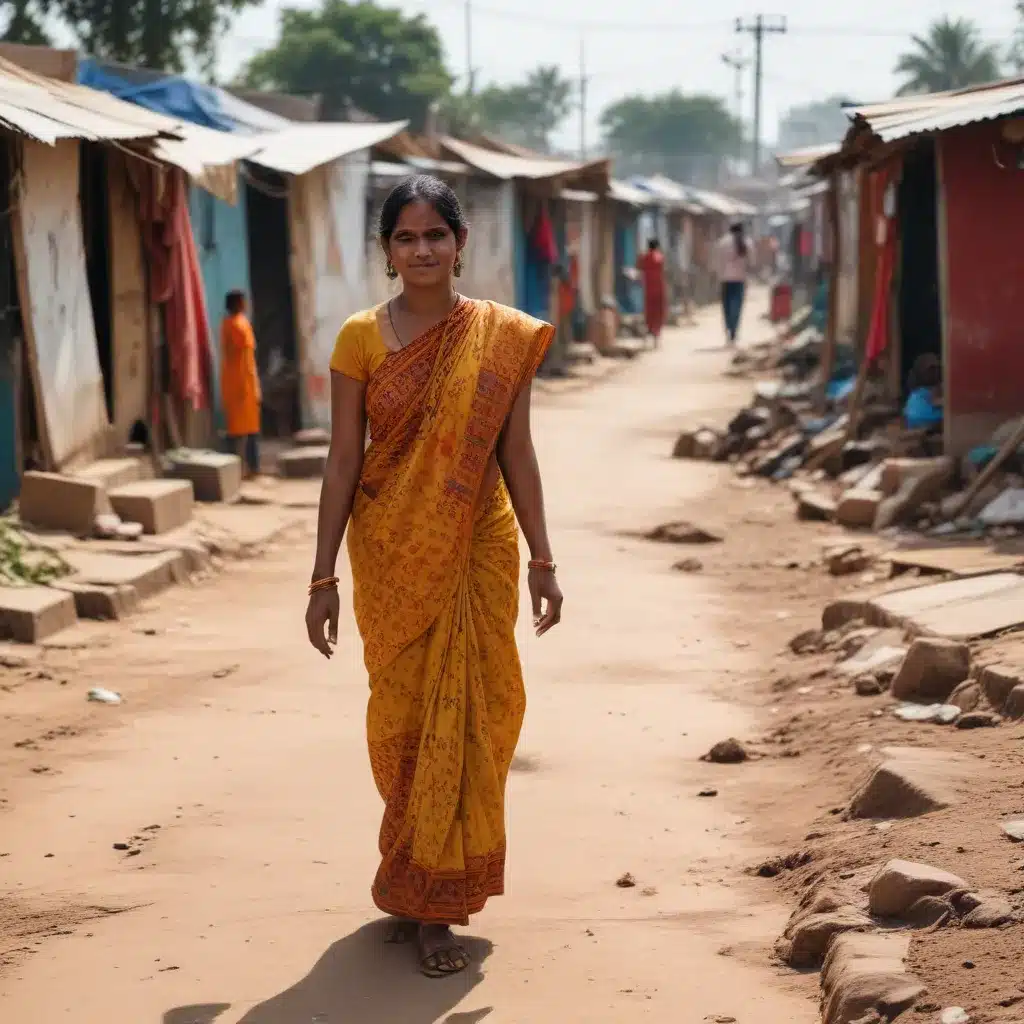
Understanding the Challenges
The COVID-19 pandemic has shone a harsh light on the devastating intersection of water, sanitation, and hygiene (WASH) challenges with mental health and overall wellbeing among residents of informal settlements worldwide. As one of the urban centers hit hardest by the crisis, the sprawling informal settlements of Hyderabad, India serve as a sobering case study of these interrelated issues.
Prior to the pandemic, the lack of access to safe water, adequate sanitation, and proper hygiene facilities was already taking a severe toll on the physical and mental health of Hyderabad’s urban poor. Residents of overcrowded slums often resorted to open defecation due to insufficient toilets, leading to the spread of waterborne illnesses, environmental pollution, and social stigma. The constant anxiety and stress of meeting basic needs only compounded existing mental health burdens, with depression, anxiety, and psychosomatic disorders prevalent.
The onset of COVID-19 has exacerbated these problems exponentially. Lockdowns and physical distancing measures disrupted already fragile WASH infrastructure and service delivery, leaving many without access to clean water for handwashing or safe sanitation. The economic impacts of the pandemic have also pushed more families into poverty, further compromising their ability to afford or access essential WASH and mental health resources.
Elevating Community Voices and Partnerships
To truly address this intersection of WASH, mental health, and wellbeing, it is critical to center the lived experiences and perspectives of Hyderabad’s informal settlement residents. Through close collaboration with local community organizations, advocacy groups, and residents themselves, several key insights have emerged:
Lack of WASH Access Fuels Anxiety and Isolation
“We are constantly worried about where we will find water to drink, cook, and bathe. The nearest public tap is over a kilometer away, and the lines are always long. By the time we get home, we are exhausted both physically and mentally.” – Sunita, resident of Banjara Hills slum
Inadequate Sanitation Breeds Shame and Social Exclusion
“When I have to use the open field for the toilet, I feel so ashamed. The other community members look down on us and spread rumors. It’s humiliating, and I avoid going out as much as possible.” – Ravi, resident of Charminar slum
Economic Pressures Exacerbate Mental Health Struggles
“My husband lost his construction job during the lockdown, and we fell behind on rent. I had to take out a high-interest loan just to buy food. The worry and stress is constant – I can’t sleep at night and often have panic attacks.” – Fatima, resident of Mehdipatnam slum
These powerful testimonies underscore the urgent need for Hyderabad’s municipal authorities, civil society organizations, and WASH sector stakeholders to work in genuine partnership with informal settlement communities. Only by elevating local voices, understanding contextual realities, and co-creating solutions can meaningful progress be achieved.
Integrating WASH and Mental Health Interventions
Encouragingly, several innovative pilot programs in Hyderabad have begun to demonstrate the benefits of an integrated approach to WASH, mental health, and wellbeing. These initiatives leverage community engagement, cross-sectoral collaboration, and holistic service delivery to address the interconnected challenges:
Community-Led WASH Hubs
Grassroots organizations have established decentralized WASH service hubs within informal settlements, providing reliable access to clean water, gender-segregated sanitation facilities, and hygiene education. Importantly, these hubs also incorporate mental health support through peer counseling, support groups, and referrals to professional services.
Integrated Home-Based Care
Mobile health teams comprising WASH technicians, social workers, and mental health professionals conduct regular household visits in informal settlements. They address immediate WASH needs, screen for mental health issues, and connect residents to a continuum of holistic care and social services.
WASH-Mental Health Advocacy
Community advocates are spearheading campaigns to elevate the WASH-mental health nexus on Hyderabad’s policy agenda. They leverage data, personal narratives, and collaborative dialogues to push for increased municipal investments, improved service delivery, and greater inclusion of informal settlement residents.
These integrated models not only improve access to essential WASH and mental health resources but also foster a profound sense of community empowerment, agency, and wellbeing. By breaking down siloed approaches, they demonstrate the transformative potential of holistic, resident-centered interventions.
Building Resilience through Systemic Change
While the challenges faced by Hyderabad’s informal settlement residents are daunting, the insights and innovations emerging from these communities offer invaluable lessons for driving systemic change. Key priorities for the road ahead include:
Institutionalizing Cross-Sectoral Collaboration: Fostering sustained partnerships between Hyderabad’s WASH, health, social welfare, and mental health systems to align policies, pool resources, and deliver integrated services.
Empowering Community Leadership: Investing in the capacity of informal settlement residents, particularly women and youth, to lead WASH and mental health initiatives within their neighborhoods.
Embedding Mental Health Support: Ensuring that all WASH programs and infrastructure projects incorporate accessible, stigma-free mental health services as a core component.
Advocating for Inclusive Urban Planning: Pushing for Hyderabad’s master planning and development processes to prioritize the needs of informal settlement communities, with a focus on equitable WASH access and mental wellbeing.
Strengthening Social Safety Nets: Expanding the reach and responsiveness of social protection schemes to buffer informal settlement residents against the compounding health, economic, and psychosocial impacts of crises.
By pursuing these systemic changes, Hyderabad can build the resilience of its most vulnerable communities and lay the foundation for a more just, sustainable, and mentally healthy urban future. The lessons learned here hold profound relevance for informal settlements worldwide, offering a roadmap for holistically addressing the interconnected WASH, mental health, and wellbeing challenges.
https://unhabitat.org/sites/default/files/2020/10/wcr_2020_report.pdf
https://www.habitat.org/sites/default/files/documents/Housing-and-Sustainable-Development-Goals.pdf
https://www.frontiersin.org/articles/10.3389/fpubh.2022.1043602/full

